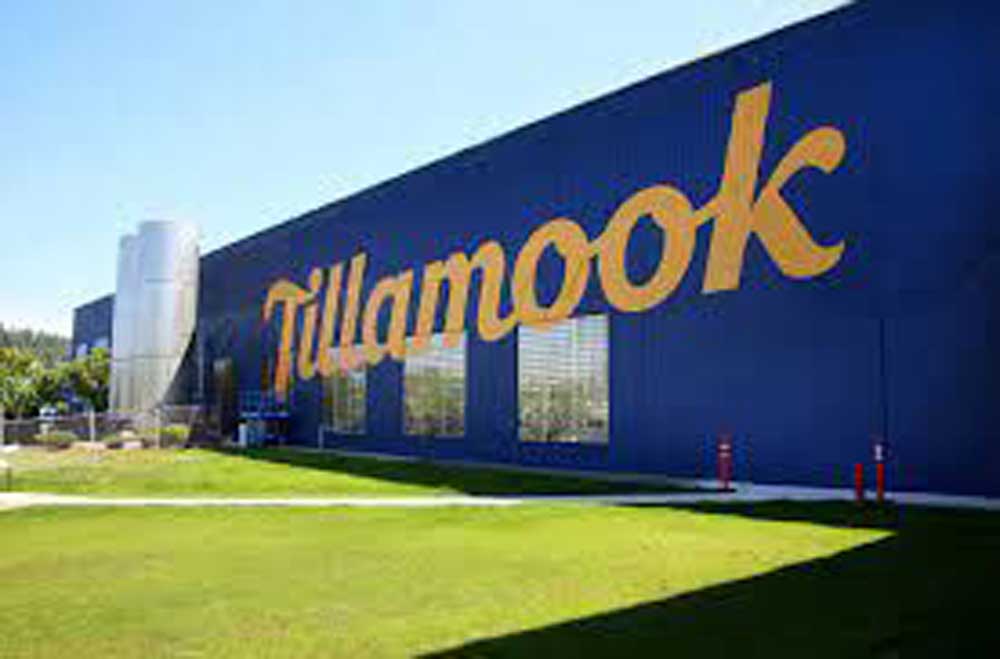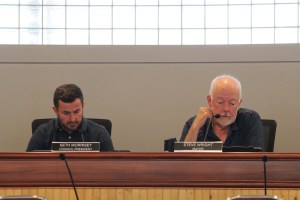Oregon Supreme Court weighs appeal in ‘greenwashing’ claim case against Tillamook dairy
Published 5:13 pm Thursday, March 14, 2024

- The Tillamook County Creamery Association, which operates the Tillamook brand, is defending itself in a lawsuit claiming misleading marketing and advertising.
The Tillamook County Creamery Association has made a name for itself milking cows and making cheese, butter and ice cream – but an animal welfare group wants to show the company is now also milking consumers by not being upfront about its source for most of the milk and how it’s produced.
Trending
The Oregon Supreme Court this month heard arguments on whether it should allow a class-action case to go forward that accuses the 110-year-old farmer-owned dairy cooperative of “greenwashing” practices.
The Animal Legal Defense Fund and four Oregon consumers allege the Tillamook County Creamery Association has made misleading marketing claims about its famous offerings. Each consumer “thought that she was purchasing a product that aligned with her values,” according to the suit.
Ads tout the company’s small, family dairies whose cows graze on the Oregon Coast’s green pastures, the suit contends, when it has for decades gotten milk from a mega dairy in Eastern Oregon.
Trending
Tillamook, in turn, has used the ads to command premium prices on products, causing millions of Oregon consumers to overpay at the grocery store, the defense fund argues.
But the courts have yet to tackle those claims — which Tillamook Creamery officials dispute and argue spring from the defense fund’s bias against dairies.
A Multnomah County Circuit Court judge previously dismissed the case, saying it doesn’t qualify for a class-action status and the Oregon Court of Appeals in August 2022 affirmed that decision.
The courts have said essentially that everyone who joins the class-action suit would have had to view the ads and rely on their representations to purchase Tillamook products.
The latest pleadings before the Oregon Supreme Court were held at the Lewis & Clark Law School before a live audience of students. Each year, the state’s highest court hears cases at law schools throughout Oregon; it chose Lewis & Clark for this case due to the school’s program in animal law.
Industry observers say the case brings up important questions about so-called green marketing that’s now widely common in the food world — and especially so among corporations that sell animal products.
“What we see is firms latching onto consumers’ beliefs and perceptions,” said Ian D. Parkman, an associate professor of marketing at the University of Portland. “If I can call this organic or sustainable or eco, those kinds of terms then become very salient for consumers when they’re making buying decisions.”
Tillamook County Creamery Association officials said in a statement that they have “been aggressively defending ourselves against those false allegations” since the suit was filed five years ago.
“We remain gratified that all previous rulings, those in both the trial court and in the Oregon Court of Appeals, have been in our favor, and we anticipate that this latest appeal by the plaintiffs will be similarly unsuccessful,” the statement said.
‘Beloved’ brand
Formed in 1909 by a small group of dairy farmers in Tillamook County, the cooperative is now owned by 60 farmers and employs 900 people in Oregon alone. It runs two processing plants, one in Tillamook and one in Boardman, and operates the iconic Tillamook Creamery visitor center on the coast that draws 1.3 million visitors annually.
In 2022, the cooperative exceeded $1.2 billion in retail sales and its products are now found in most supermarkets across the U.S.
The company, awarded a “Beloved Oregon Brand” honor last year by the Oregon Historical Society, plans to open an ice cream manufacturing facility in Illinois later this year and has recently expanded beyond the dairy aisle to prepared frozen meal products.
The company’s labels play up its origin in Tillamook County and its website and social media platforms feature the county’s rolling hills, cows in pastures, the cooperative model, its connection to local farmers and its commitments to “healthful cows” and “enduring ecosystems.”
“Farmers continue to be at the heart of all we do,” the website says.
But while the cooperative does source milk from its Oregon Coast-based farmer-owners, over two thirds of the milk it uses comes from the Columbia River Dairy outside Boardman, a confined animal feeding operation with a permit to hold 28,000 cows, according to the Oregon Department of Agriculture. The average Oregon dairy has about 340 cows.
Columbia River Dairy is owned by Boardman-based Threemile Canyon Farms, the state’s largest industrial dairy operation and one of the largest in the U.S. In addition to Columbia River Dairy, Threemile Canyon Farms also owns two other dairies, a specialty beef operation and about 90,000 acres of cropland and rangeland. Tillamook has been working with Threemile Canyon for nearly two decades, according to its website.
The lawsuit, filed in 2019, states that Threemile Canyon, much like other industrial dairies, confines its cows to concrete warehouses and dirt feedlots. It also cites data showing most of the operation’s cows suffer from a debilitating, painful disease called bovine mastitis.
Neither Threemile Canyon nor Columbia River Dairy are named in the suit against Tillamook. Separately, a lawsuit filed by several Boardman residents alleges Threemile Canyon and several other farming businesses have dumped millions of tons of excess nitrogen onto fields, contaminating their drinking water with nitrates and potentially causing serious health problems.
Premium price
The Tillamook lawsuit centers on a state consumer protection law, the Unlawful Trade Practices Act, which has been around since the 1970s and allows consumers to recover damages that occur as a result of deceptive sales or business practices.
Nadia Dahab, an attorney representing consumers in the case against the Tillamook cooperative, told the Supreme Court justices that the cooperative had created a false perception of its products that allowed it to overcharge customers.
“Through its marketing and advertising campaign, Tillamook held its products out as something they’re not: family farmed, locally sourced, artisanal dairy products that come from cows that graze freely in the vast green lush pastures of Tillamook valley,” she said.
One of the ads referenced in the lawsuit slams “Big Food” — a reference to large industrial food corporations — pitching Tillamook as their antithesis. It features, among other images, a farmer throwing bales of hay from the bed of a pickup truck onto a green field, another farmer bottle-feeding a calf from a large milk jug and a hand stroking a cow’s back. “Hello farmers, hello co-op, hello integrity, hello Molly!” the ad says.
Another ad proclaims “Farmers, not shareholders” and “We are independent farmer-owners, which means our values guide us instead of profit margins. That’s the way we’ve been doing it since 1909. That’s dairy done right.”
Those depictions confuse consumers, the lawsuit contends, because — given where Tillamook sources its milk — “Tillamook is Big Food” and “the embodiment of industrial dairy.”
Because higher pricing is tied to perceptions created through that advertising, Dahab said in court that “every person who purchased a Tillamook product at that premium price, regardless of why they chose to do so, suffered an ascertainable loss of money or property.”
The lawsuit seeks monetary relief on behalf of all people in Oregon who bought Tillamook dairy products between Aug. 19, 2018, and the date when the court would certify the class action.









